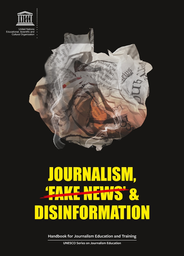Tips to Remember
 Remember that the news cycle is driven by ratings, which in turn generate views, which translate into revenue. Sensational stories, click bait and other forms of "news" are king in the modern media landscape. Real investigative journalism takes time. Keep this in mind as you read a news article.
Remember that the news cycle is driven by ratings, which in turn generate views, which translate into revenue. Sensational stories, click bait and other forms of "news" are king in the modern media landscape. Real investigative journalism takes time. Keep this in mind as you read a news article.
- Consider the news source's overall reputation. Some news sources are generally well regarded, while others have a stronger reputation for circulating click bait and misleading information. At the same time, keep in mind that even trusted news sources sometimes get things wrong, especially when a story is rapidly developing.
- Look beyond the headlines, which are often written to grab attention and may misrepresent or oversimplify the fuller story. What evidence or sources are referenced? If a news article reports on scientific findings, look for links to the original research findings that will allow you to see how the headline and the study's abstract compare. Remember you can also check Retraction Watch’s COVID-19 section to see if a given study has been red-flagged.
Image credit: "coronavirus-covid-19" by Nursing Schools Near Me is licensed under CC BY 2.0
Further Reading
-
How to Evaluate Sources (Stonybrook Center for News Literacy)Key questions for evaluating news sources
-
How to read the news like a scientist and avoid the COVID-19 ‘infodemic’ (World Economic Forum)A 2020 article published by the World Economic Forum covering how to evaluate news stories in a scientific manner.
-
Introducing IMVAIN (Stonybrook Center for News Literacy)Presents the acronym IMVA/IN as a method for evaluating the credibility sources that appear in news stories (e.g., Independent sources over self-interested ones, Multiple sources over single sources).
-
Journalism, Fake News & Disinformation: Handbook for Journalism Education and Training (UNESCO)"Written by experts in the fight against disinformation, this Open Access handbook explores the very nature of journalism with modules on why trust matters; thinking critically about how digital technology and social platforms are conduits of the information disorder; fighting back against disinformation and misinformation through media and information literacy; fact-checking 101; social media verification and combatting online abuse."

